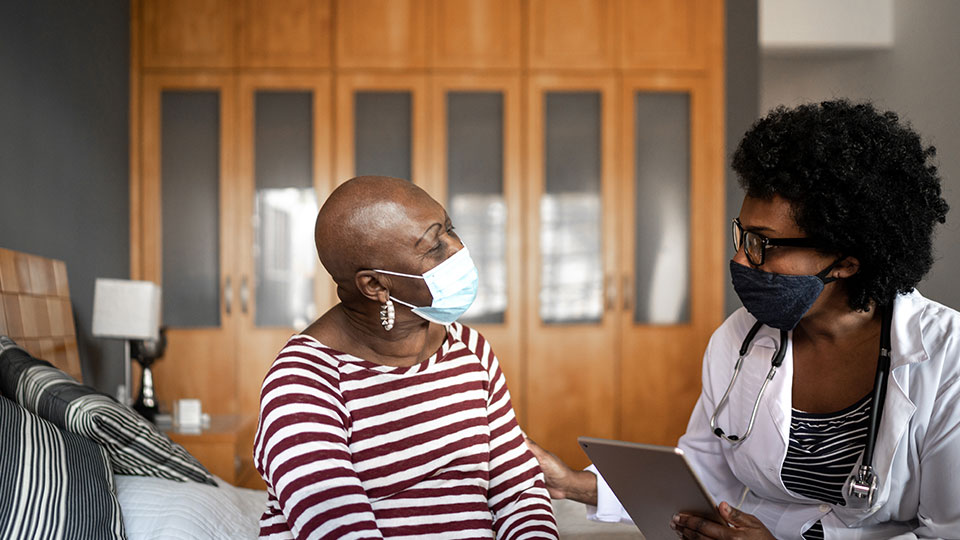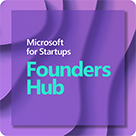The cloud has been transformational in terms of the volume and rate of new startup companies being formed. Early-stage funding in global startups reached a record-breaking $201 billion in 2021. That’s $100 billion more in funding than 2020. Approximately $29.4 billion went to seed-stage startups. Yet, as we know, opportunity isn’t equally distributed. In 2020, only 2.3% of funding went to women-led startups, 1.7% to Latin-owned business and just 0.6% to black-owned businesses. With Microsoft for Startups Founders Hub (now in Private Preview) we’re hoping to improve that equation by providing early-stage founders with free access to technology, business guidance and technical support regardless of their background, location or funding level. To better understand the experience of black founders, last week we sat down with Ron Steptoe the CEO and Co-Founder of Warrior Centric Health, which has created a platform to improve health outcomes for Veterans, Active-Duty, National Guard, Reservists and their families (aka the Warrior Community.)
Can you tell us a little about your background and how that led you to found Warrior Centric Health?
To understand what led me to found Warrior Centric Health, I think it’s important to understand my family history and how service to the country has been central to shaping who I am as a person.
My fifth great grandfather, James Bowser I, was one of 5,000 African Americans that fought during the Revolutionary War. In fact, because of his service under the command of General George Washington, and that of his son James Bowser II , who was 19 at the time, they were each awarded 200 acres of land in Nansemond County, Virginia. You can imagine what that would have been like for an African American at that time.
Moving to the Civil War, my third great grandfather was a freeman working that land. He made the bold choice of working as a Union Intelligence Officer in what was then the Confederate South. Unfortunately, he was discovered and was subsequently flogged and beheaded.
Wow, that is truly amazing and quite unique. I imagine that your family history inspired your professional journey and future goals. Could you walk me through where that led you?
As you heard, there was always this thread of military service running through my family. This naturally led me to the United States Military Academy at West Point. I learned a tremendous amount about leadership through that experience. After completing my service, I joined Pfizer where I worked for 14 years in sales and led a national special projects team focused on multi-cultural health initiatives—what we would today call population health. Specifically looking at how to address health disparities between under-served populations and the general population.
In 2008, nearly 7 years after the start of the Iraq and Afghanistan wars, it started to become apparent that the healthcare system within the military sphere was being stretched beyond its capacity, which culminated in the Walter Reed scandal. One of the key takeaways from this was the need to educate healthcare providers about military culture. We also saw a phenomenal level of post-traumatic stress disorder (PTSD) and traumatic brain injury (TBI), with service members returning from war. By 2008, about 1.6 million service members had gone down range to Afghanistan and Iraq. Of those it was estimated that about 320,000 had PTSD and another 360,000 had TBI.
I remember seeing this data and thinking: “Where else do you go to work and basically get your brain scrambled?” At the time, there were about 20 million veterans and only about 30% had registered for VA healthcare benefits. Together with Warrior Centric’s Co-Founder, Dr. Evelyn Lewis, who was a Navy Veteran and Family Physician, we realized that the majority of veterans who needed medical assistance were being seen in the commercial sector, not the VA. And the commercial sector was completely unaware and unprepared. That’s what inspired us to build what became Warrior Centric Health.
Can you tell us about Warrior Centric Health?
Based on our combined experience, our team launched Warrior Centric Health to bring equity to the healthcare sector. We do that by providing solutions that enable healthcare facilities to deliver optimal care to large, diverse populations of patients whose specific needs are now largely overlooked. This includes veterans, active-duty service members, National Guard, reservists, and their families—what we call the Warrior Community. This fully integrated solution suite provides data science to identify these populations, training for staff on how to work within this culture and outreach tools to reach these communities. It’s all put into an integrated population health management system that allows health systems, hospitals and medical centers to get a granular view of who’s in their community. We then educate them on how to treat this community effectively, communicate with them, and establish credibility. It’s through these partnerships that we have been able to align their mission and what they’re trying to do to improve the lives of patients.
What advice do you have for other founders out there – particularly founders of color?
My advice is to be prepared for tough journeys. Be prepared to exhaust your personal network and personal cash. It took us over 14 years to get to where we are today with $3.5 million in funding. If you look at the military and veteran community, including their families, it’s a market of 75 million people, with each of them commercially insured for healthcare at about $5,500 annually. That’s a $300 billion annual spend in the commercial healthcare sector that nobody was addressing before we came along. It’s an incredible opportunity but it has also been an incredibly tough journey to get here. Harlem Capital published a report that looked at the number of Black and LatinX firms that have raised more than a million in funding since 2000. It was less than 300. While I feel proud to be among those 300, I am at the same time disheartened. There is a dearth of investment for brilliant people with brilliant ideas and it’s hurting us as a nation.
As African Americans and people of color, we’ve always had to make do and make a lot out of nothing. Make the most of the crumbs. At this point, I am a master crumb cake maker.
In terms of practical advice, I encourage founders of color to be scrappy and look for funding sources through state or local municipalities. We were very fortunate early on to receive investment from the state of Maryland’s Technology Development Corporation (TEDCO).
What sustained you through all of this?
When my wife and I graduated from West Point, we recognized that we might have to give our lives in service to the country. Thankfully, we made it through the era of Gulf War and transitioned into well-paying careers. We had an amazing life. But I must tell you that there was a hole. This nagging thing I couldn’t put my finger on. I would read the policy statements and reports from Iraq and Afghanistan and see the mind-boggling death, destruction and sickness affecting our Service Members, Veterans and their families. It haunted me because these were my people. People I spent 30 years of my life with.
When we started Warrior Centric Health that hole was filled up because I had a mission, a mission that I was willing to give my life to. Sometimes you’ve got to pick what will you die for. Once I got to that point, it actually became easy.
What has your experience been like working with Microsoft?
The level of support that we have received has surpassed my expectations. I pinch myself at night. Is this really happening? Especially after 14 years? Our partnership with Microsoft has crystallized our ability to take our company to the national level. You guys have just been absolutely amazing. If someone were to tell me or I had an opportunity to have my wildest dreams of what a partnership would look like with a big tech company, this would be it.











